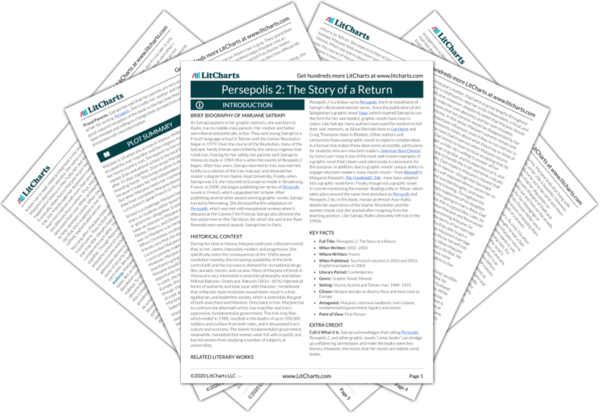AI ToolsNew
Tools to make learning and teaching easier
|
Previous
Hide and Seek
|
Persepolis 2: The Story of a Return: The Croissant Summary & Analysis |
Next
The Veil
|


Upgrade to unlock the analysis and theme tracking for all of Persepolis 2: The Story of a ReturnPersepolis 2: The Story of a Return!
Get LitCharts A+